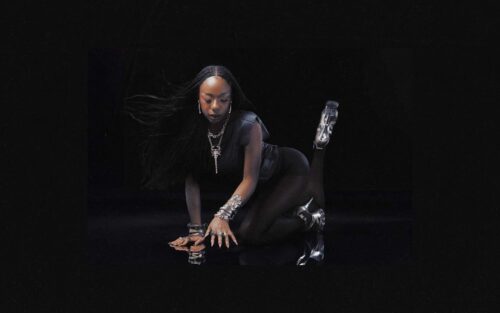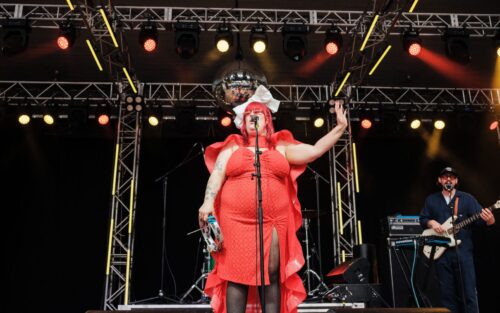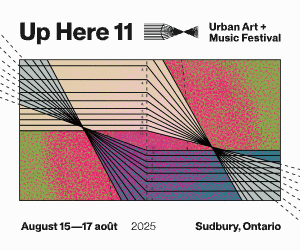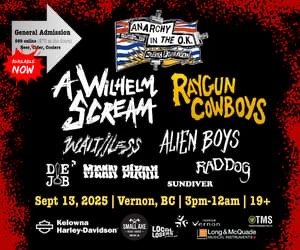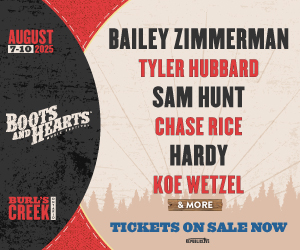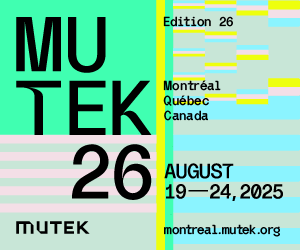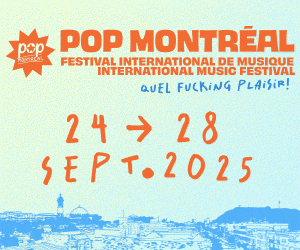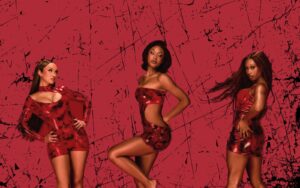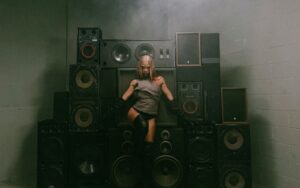
Handsome Tiger Is Building Bridges to "Better Daze"
Through cross-continental collabs and ancestral roots, the Vancouver-based DJ and producer is creating space for shared stories on the dance floor.
by Hannah Harlacher
Photos by Audrey Alexandrescu
- Published on
With roots that span both Indigenous and North African lineages, Vancouver-based producer and DJ Handsome Tiger is forging powerful new pathways through electronic music. His upcoming album Diaspora II (out Sept. 12) builds on the decolonial bass aesthetic he introduced with his 2021 album, Diaspora, expanding into a bold cross-cultural celebration of sound. Blending traditional powwow samples with global club rhythms, the project draws connections between Turtle Island and Africa, the spiritual and the street-level, ancestry and innovation.
The lead single “Better Daze”—a standout collaboration with Ugandan MC Swordman Kitala—arrives just ahead of National Indigenous People’s Day (June 21), offering an early glimpse of what’s to come when Diaspora II officially drops later this summer. For Handsome Tiger, music is more than expression, it’s a way of reclaiming space and reconnecting with cultural identity. “My people will sleep for one hundred years,” he says, quoting Louis Riel, “but when they awake, it will be the artists who give them their spirit back.”
We caught up with Handsome Tiger to talk about the meaning of the day, the inspiration behind Diaspora II, and the power of cross-cultural collaboration.
What does National Indigenous People’s Day mean to you, personally and as an artist?
I think it’s a great day and a perfect time to celebrate all aspects of Indigenous life and the richness of our cultures across Turtle Island. Summer solstice has always held deep cultural and spiritual meaning for our people—something that’s been honoured for generations. As an artist, it’s been really special to be part of events around this time. Sharing our art is a way of keeping our culture alive and passing it on.
How do you see music as a way to reclaim or hold space for Indigenous identity?
There’s a quote by Louis Riel that’s always stuck with me: “My people will sleep for one hundred years, but when they awake, it will be the artists who give them their spirit back.” I think it really speaks to the role we, as artists, play in preserving and revitalizing cultural identity. It’s been incredible to witness the rise of Indigenous voices in entertainment and mainstream arts and media. There’s such a powerful movement happening right now—and it’s inspiring to be part of it.
What’s one meaningful way listeners can support Indigenous artists year-round?
Make the effort to seek out and support more Indigenous artists, musicians, authors, and media creators. When possible, amplify and stand behind Land Back initiatives—or find a cause you’re genuinely passionate about and advocate for it in meaningful ways.
What was your vision for Diaspora II, and how does it build on your previous project?
Over the last couple of years, I’ve been building the repertoire for two new projects—half of which naturally carried forward the influences from Diaspora. I wanted to keep exploring and expanding on Pan-African rooted and Indigenous sounds that have strong parallels to my own culture. It’s about connection—between cultures, people, and places.
Were there particular emotions or experiences you wanted to explore?
The original Diaspora was about creating space for BIPOC and Indigenous voices in electronic music, and also a way for me to explore my connection to global club sounds as an Indigenous and African artist. This new project feels like a natural extension—bringing together different vocal styles and languages in a decolonial way, while continuing to build those bridges through sound.

Is there a track on Diaspora II that feels especially personal or meaningful?
I’d have to say the lead single, “Better Daze.” The track went through such a transformation since the first instrumental I made in spring 2024. It’s also the only one on the project that features the signature traditional powwow samples I use, which makes it really special. It evolved into a dope collaboration with Swordman Kitala last winter, once we added his signature rap flows in Luganda, his native language. The Ugandan x Turtle Island link-up really captures the spirit of Diaspora for me.
How do the themes of “diaspora” connect to your own journey and identity as an artist?
I think the themes and sounds in Diaspora II cross and weave between borders while staying rooted. They show up through the languages, rhythms, and collaborations that span cultures and continents. As someone with both Indigenous and African roots—it shapes how I move through the world, how I create, and how I connect. This project reflects that experience. It brings together voices from places that feel spiritually and historically linked. Diaspora II is a continuation of that journey—one that’s deeply personal, but also shared.
Who are some Indigenous artists or collaborators you’re excited about right now?
Snotty Nose Rez Kids, Prado, Rei, Stella Standing Bear.
What has collaboration taught you about your creative process and voice?
There’s a unique collective energy that comes from creating art with others. Collaborating—whether side by side or across distance—brings fresh ideas and shared experiences that can lead to really powerful moments. Celebrating and working with people from different backgrounds adds even more depth. It can reflect our shared lived experiences and create something that feels bigger than any one person’s story.
If you could curate your dream Indigenous People’s Day festival, who would be on the lineup?
It may happen one of these days! Haha. I’d book Snotty Nose Rez Kids, Drumbeat DJs, Prado, Tia Wood, Sebastian Gaskin. I’d want it to be a mix of all Indigenous artists, nations, and music genres—really showcase all the styles of Indigenous artists killing it right now.
What do you hope people feel when they hear your music?
I hope it leaves people feeling inspired and empowered—and maybe even sparks dialogue on the dancefloor. It’s important to reflect on how so many cultures have shaped the music we move to and consume. Recognizing that can deepen both our appreciation and our connection to the sounds and the people they come from.
Diaspora II drops Sept. 12 via Amelia Recordings.
By Sebastian Buzzalino
Calgary’s beloved summer festival trudges through the downpour with a stacked lineup of genre-bending greatness.
By Megan Magdalena
Rebecca White of Vancouver punk act WAIT//LESS interviews frontwoman Missy Dabice in a backstage catharsis session.

